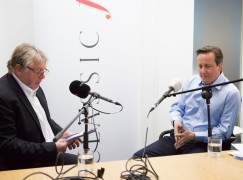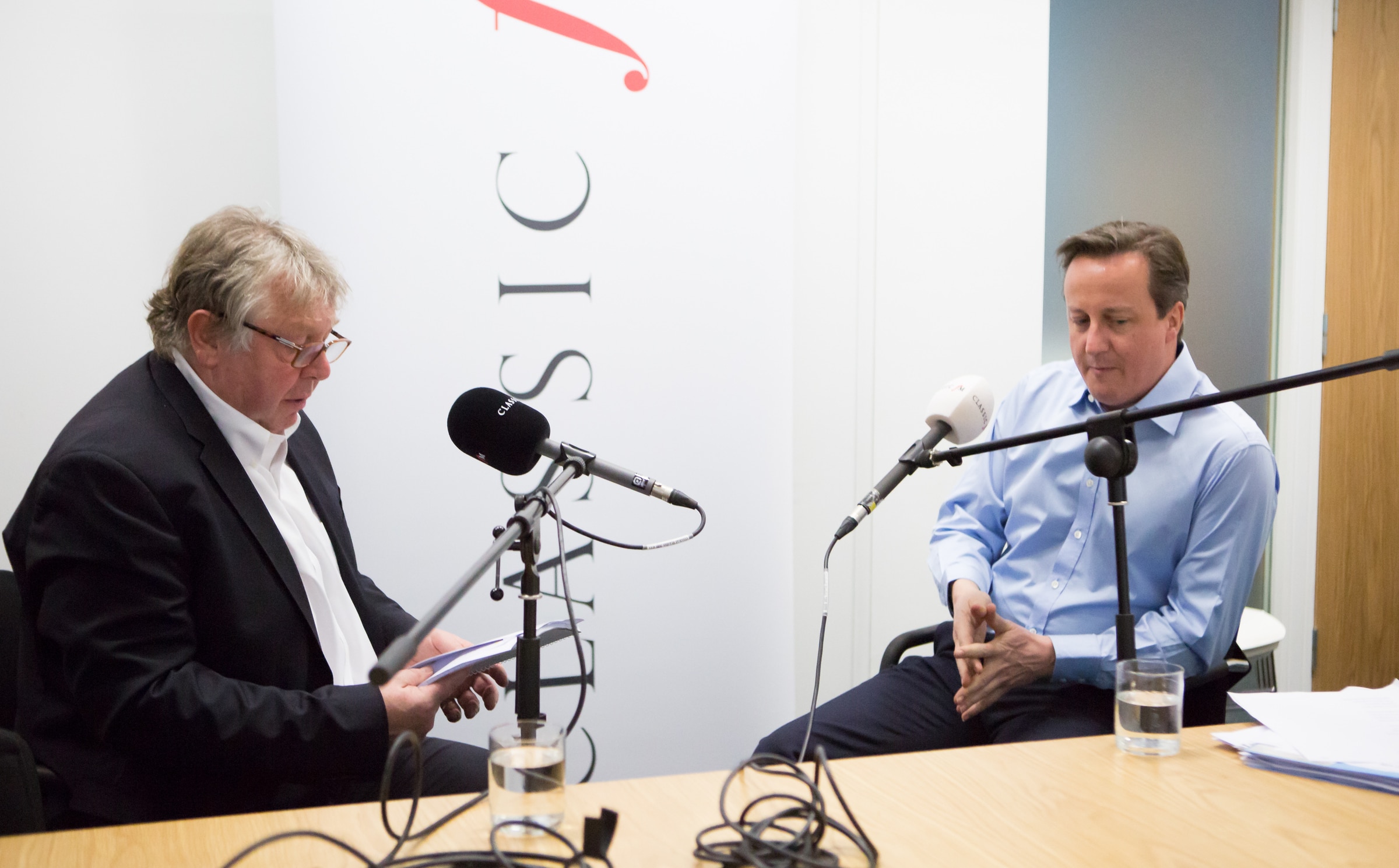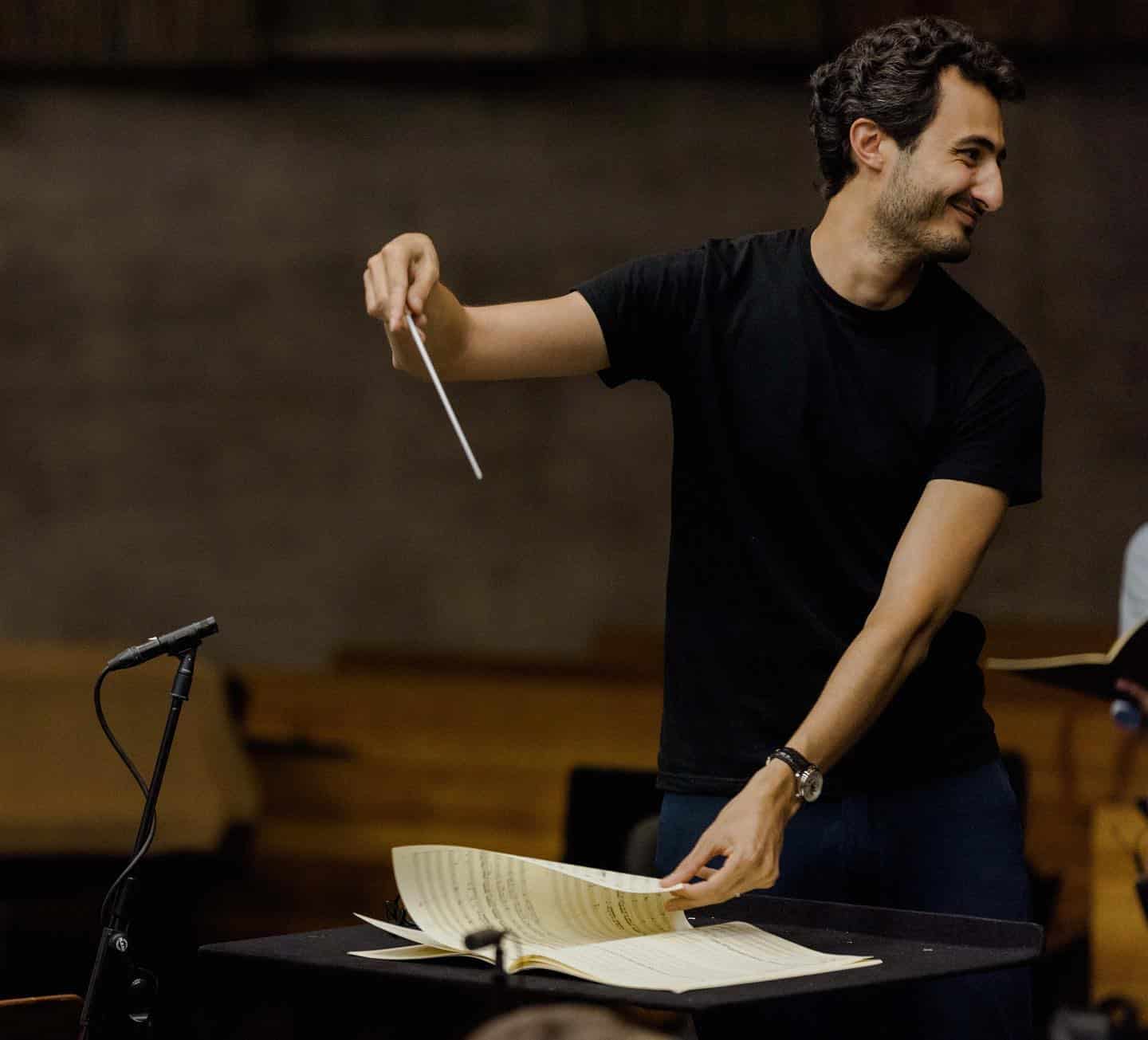Classic FM pitches for composers younger than itself
mainThe easy-listening station marks its 25th anniversary this year.
It is seeking composers under 25 to write music that will not frighten the horses.
Apply here.
Press release:
Classic FM has teamed up with the Royal Philharmonic Society to commission six brand new pieces of classical music written by composers who are no older than the station itself.
The Classic FM 25th Birthday Commissions, in association with the Royal Philharmonic Society (RPS), launches today, as part of a year-long celebration for the UK’s number one classical music station. Alongside twelve months of special programmes, live concerts and events, Classic FM has joined forces with the RPS, one of the most important commissioners of composers since Beethoven, to look to the future and champion Britain’s outstanding young musical talent.
Young composers from all corners of the UK who were born on or after Classic FM’s first broadcast on 7th September 1992 are welcome to apply. When the station launched, its central mission was to make classical music relevant to everyone, and this mission remains at the core of Classic FM today. Entrants will therefore need to demonstrate an ability to write accessible classical music, for varying sizes of ensemble.







Of course we should always remember the future that youth brings into play, especially if it will be easy.
(‘It’s a poor sort of memory that only works backwards’ – The Queen to Alice.)
“its central mission was to make classical music relevant to everyone”
Classical music is ALREADY “relevant” to everyone. A broadcaster should try to make it available to and comprehensible by everyone, which is much harder than just cherry-picking popular tunes. There’s nothing wrong with music you can hum — warhorses became that way for a reason — but there’s so much more, and while no one style will appeal to everyone, and no one listener will like everything, there’s music for each and every listener.
Very true. The problem with classical music is its accessibility, which needs some information and education, not the art form itself. It is a mistake which is made again and again, presenting the art form as something much ‘easier’ and more banal than it is.
I’ve seen that guy in the blue shirt somewhere before. Now let me think, who was he………..?
I think it was the guy who cleverly tricked the UK out of the EU in a way that put the blame on others.
It’s unfortunate that making classical music relevant to everyone is equated with making classical music accessible and that making classical music accessible seems to be equated with playing only a very limited repertoire of popular extracts from the classical canon, as well as more recent compositions that have become popular through film, television, and video games. I don’t suppose that Classic FM has ever played its listeners Olivier Messiaen’s Vingt regards sur l’enfant-Jésus, for example. If only it would, I imagine that a good many of them would realise that that extraordinary work is both relevant and accessible.
Don’t forget that for the 20 looks on the infant Jesus one needs quite some time; one should begin with one look. But indeed, there is so much more that is suited for beginner’s luck.
A coule of years ago, Sir Simon took the Berlin Phil into a neglected suburb to have the local kids dancing on the Sacre, which went down pretty well and considerably raised the social status of the orchestra.
True, the Classic FM format doesn’t allow for two uninterrupted hours of music, but the individual movements average about six minutes each. Perhaps a more practical suggestion would have been Le Banquet Céleste. The first time I heard it was at a church service, and I thought it was so wonderful I had the check the service sheet to make a note of it so I could listen to it again. As your anecdote about the Berlin Philharmonic shows, if you give people an opportunity, they may well make something of it. If you do not give people an opportunity they do not, of course, stand a chance. As for Classic FM, it is a commercial enterprise, so I suppose their only obligation is to make money, and they make money by having the highest possible ratings, and they do that by playing the music that people want to hear. I just have a feeling that if I owned a commercial radio station I’d be tempted to be a little subversive and to live a little dangerously by including, perhaps just occasionally, something that people may not have heard before. “And next, ladies and gentlemen, something a little different, Messiaen’s Le Banquet Céleste. Please do keep listening; it’s only about seven minutes long, and you may actually like it. Coming up right afterwards we’ll be returning to an old favourite, the Benedictus from Karl Jenkins’s The Armed Man.”
That is funny indeed… I guess nobody would raise an eye lid and accept it. Audiences are always greatly underrated. One of the reasons audiences decide to not go to the concert with the Mendelssohn violin concerto is that they have 5 recordings at home in quadrophony, so why take the trouble?